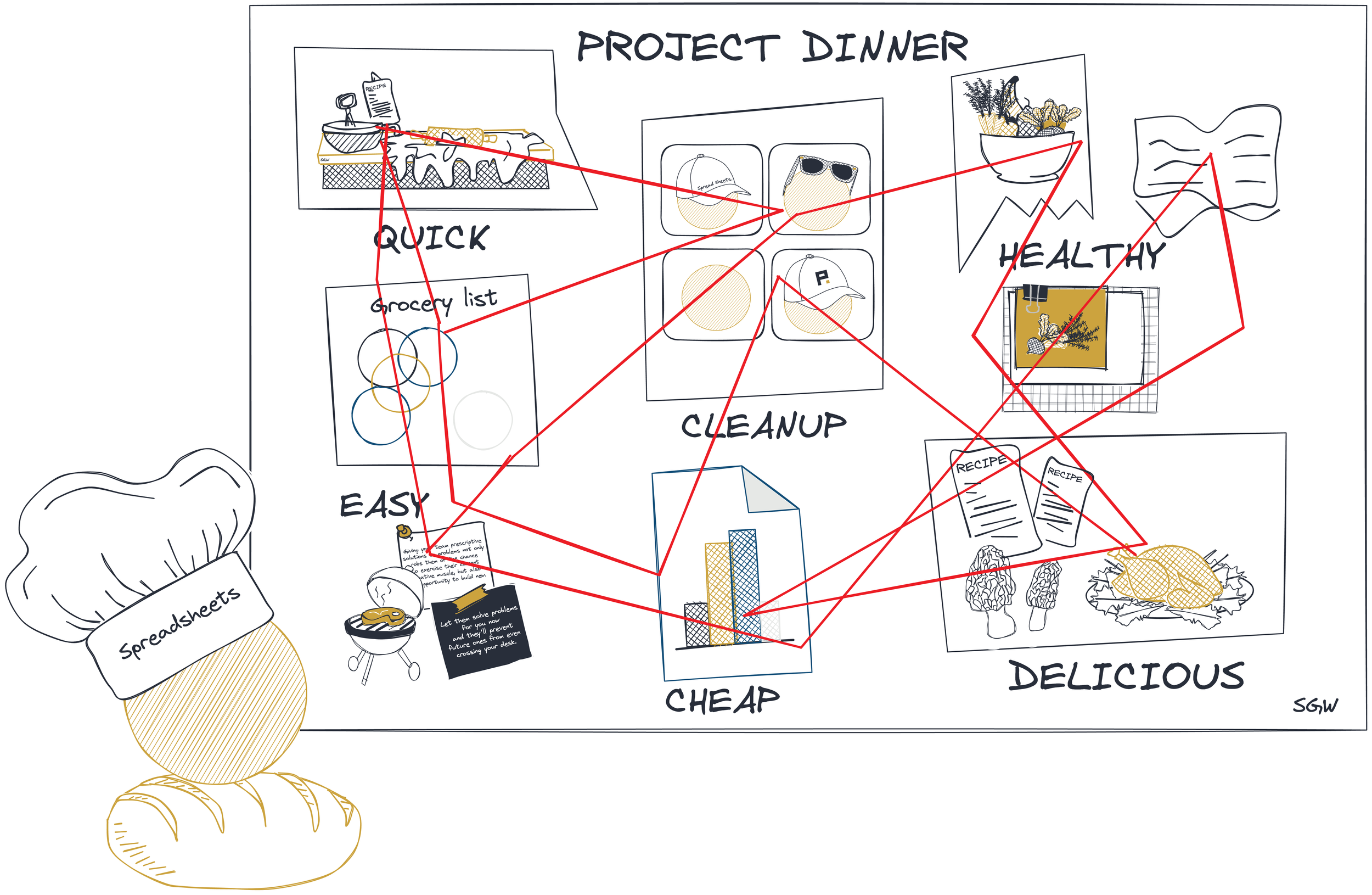Get Control of Dinner
If you’re like us Hansons, then one of the things you spend a lot of time strategizing about is dinner. Specifically, what to have and when to have it. That’s because we’re busy, but also get hungry and like to eat together as a family.
When it comes to what to have, one joke is that we always want to have the same thing, but never quite have it. That’s something that’s quick, easy, healthy and delicious, but doesn’t break the bank or leave a lot of mess to clean up. Of course, one reason we never have that is because such a dinner doesn’t exist (or if it does, we don’t know about it so pass along your recipes please).
But another quite literal reason we never have “quick, easy, healthy, and delicious, but doesn’t break the bank or leave a lot of mess to clean up” for dinner is because one can’t eat that. That’s the end or the aim of dinner, not the means, and your outcomes are not your processes. What’s more, getting specific about the ends of dinner without getting into the means actually makes the process of preparing dinner that much harder. That’s because few meals check all of those boxes (again, I’ll take your recipes) and so everything becomes a “no.”
Something I often see in goal-setting, planning, and forecasting that I think is a mistake is people being very specific about desired outcomes while being somewhat more vague about the processes that are to achieve them. For example, a business might set a 20% sales growth target but leave unsaid how much of that will be units and how much pricing or how much is growth with existing customers and how much is new customer acquisition or if that’s assuming a steady product portfolio or the launch of new products. Then, tactically, as the year goes on, if the growth goal is not being achieved, strategy can devolve into throwing everything at the wall and seeing what sticks, so to speak.
My preferred approach, on the other hand, is to be somewhat vague about desired outcomes, but specific about the processes and initiatives a business is going to launch, grow, or sustain. This is controlling the controllables, and I think a better way of taking deliberate and productive action.
For example, one of our businesses has the goal of growing market share this year with a minimum threshold set somewhat above zero since growing 0.2% or something might just happen by random chance. Market share was also deliberately chosen instead of revenue because this business has some exposure to commodity prices and so its revenue fluctuations can be somewhat outside of its control.
Underpinning this broad goal to grow market share are three very specific initiatives. First, the company needed to develop a fast and reliable way to calculate its market share ongoingly and someone was put in charge of figuring that out. Second, there needed to be intentional funnel-building around new customers and a planned cadence for reaching out to them. Someone else was put in charge of that. Finally, the company needed to develop a tool for forecasting which of its existing customers were most likely to grow so it could strategically focus existing business development efforts. And another person was put in charge of that.
Now, if we do those three specific things, we are pretty confident they will help the company grow market share over time in a healthy and sustainable way. But if instead we had said to grow sales or market share by at least 20% without being specific about how, perhaps we’d cut prices instead or come up with a convoluted way of measuring market share so it looked like we were achieving our goal. Or maybe do something even more convoluted since ends are said to justify means. Of course, we might aspire to grow 20%, but maybe that shouldn’t be our goal.
In terms of dinner, what this means is understanding the process by which dinner might get everyone fed with the aspiration of being “quick, easy, healthy, and delicious, but doesn’t break the bank or leave a lot of mess to clean up.” In other words, how much time do we have to eat, what’s in the pantry, can we pick up the dishes tomorrow, etc. Then the meal that gets made is determined by those processes informed by aspirations to achieve as much of the outcome as we can.
Or we get takeout.
– Tim


